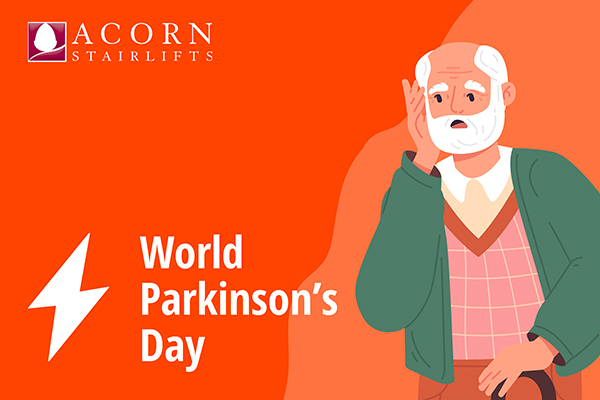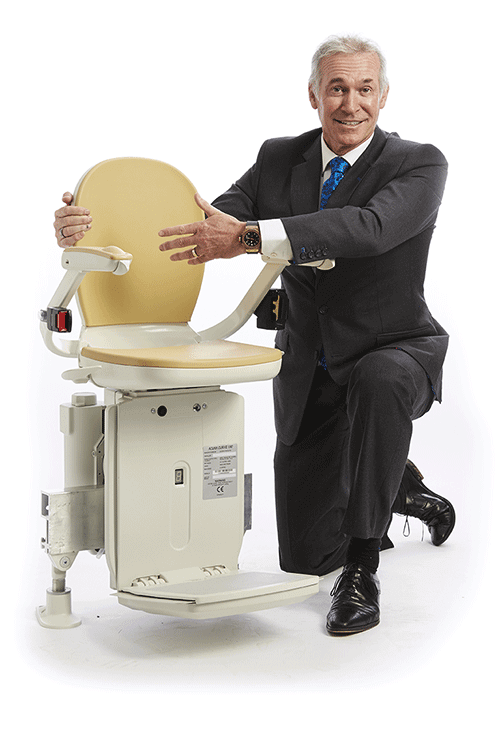Body tremors. Stiffness. Slowness in movement. Sweating. Slurred speech. Impaired mobility.
These are just a few of the over 40 symptoms that accompany Parkinson’s Disease, the fastest-growing neurological condition in the world, ranking as the second most common age-related neurodegenerative disorder after Alzheimer’s disease.
In fact, an estimated 7 to 10 million people live with the disorder globally, with about 10,000 of these Parkinson’s patients living in New Zealand.
As the condition continues to become more widespread, impacting more and more individuals, families, and communities all over the world, so does the urgency to do something about it.
This year on World Parkinson’s Day, learn about how you can help raise awareness of Parkinson’s, support the people whose lives are impacted by this disease, and “spread the spark.”
What is Parkinson’s Disease?
Parkinson’s Disease is a progressive neurological condition caused by the deficiency of dopamine.
However, unlike other motor disorders, the cell loss caused by Parkinson’s Disorder only occurs in a specific region of the brain called the substantia nigra.
This affected region is the part of the brain containing cells that are responsible for the production of dopamine, a neurotransmitter that helps regulate the movement of our bodies.
As the nerve cells that would normally produce the chemical dopamine die, the person develops a deficiency of dopamine—Manifesting itself in the form of complications and symptoms related to motion, as well as others that are unrelated to motion.
While the exact cause of Parkinson’s remains unknown, some of the risk factors include increasing age (although young people can be affected as well), genetics, being a male, and environmental factors such as air pollution, pesticides, and industrial solvents.
As of now, scientists speculate that the disease arises from a complex interaction between these genetic factors and exposure to the above environmental conditions.
What are the Parkinson’s Disease Symptoms?
While Parkinson’s is most commonly associated with motor impairments, the disease is also responsible for causing several non-motor complications that people may not be aware of such as cognitive impairments, sleep disorders, mental health disorders, sensory disturbances, and pain.
Listed below are just some of the many symptoms experienced by people with Parkinson’s:
- Tremor or trembling of the arms, jaw, legs, and face
- Stiffness or rigidity of the limbs and trunk
- Slowness of movement (bradykinesia)
- Tremor
- Slow movement (bradykinesia)
- Rigidity and freezing in place
- Stooped posture
- Lack of facial expression
- Slowed activities of daily living (for example, eating, dressing, and bathing)
- Staying in a certain position for a long period of time
- Problems with balance and coordination
- Diminished sense of smell
- Low voice volume (hypophonia)
- Trouble speaking (dysarthria)
- Sleep problems
- Depression
- Emotional changes (fearful and insecure)
- Skin problems
- Constipation
- Drooling
- Increased sweating
- Urinary frequency or urgency
Because Parkinson’s is a progressive disorder, these symptoms will only worsen over time as the disease progresses.
On top of all of these symptoms (and many more), many people with Parkinson’s Disease will go on to develop Dementia over the course of the disease.
What are the Stages of Parkinson’s Disease?
In 1967, Margaret Hoen and Melvin published a scale in the journal Neurology composed of 5 defined stages that were meant to measure the progression of Parkinson’s symptoms, as well as the level of clinical disability.
While the Hoehn and Yahr Scale is still widely used today to track the progression of Parkinson’s in patients, since then, stages 0, 1.5. and 2.5 have been proposed and added to the scale.
The up-to-date scale is as follows:
- Stage 0 - No signs of disease
- Stage 1 - Symptoms affect one side of the body only (unilateral)
- Stage 1.5 - Symptoms are unilateral, but now also involve the neck and spine
- Stage 2 - Symptoms affect both sides of the body, but there is no impairment of balance
- Stage 2.5 - Mild symptoms on both sides of the body, with recovery when the ‘pull’ test is given (the doctor stands behind the person and asks them to maintain their balance when pulled backwards)
- Stage 3 - Balance impairment, mild to moderate disease, still physically independent
- Stage 4 - Severe disability, but still able to walk or stand unassisted
- Stage 5 - Needing a wheelchair or bedridden unless assisted, require around-the-clock care
What is World Parkinson’s Day?
World Parkinson’s Day is a day designed to highlight the profound impact that Parkinson’s Disease has on individuals, families, and communities all over the world—It is also a chance for us to unite globally in recognition of Parkinson’s, celebrate the fundamental work being done to manage and raise awareness of the disease, and salute the strength and resilience of the people living with Parkinson’s Disease.
Furthermore, World Parkinson’s Day is an outstanding opportunity to urge global leaders, national leaders and policy makers, and healthcare professionals to recognise the significant impact that Parkinson’s has on communities globally.
These integral, influential figures in our society are encouraged to take necessary action in order to:
- ensure that people with Parkinson’s have access to the treatment they need and get the quality of life they deserve
- Develop appropriate strategies and policies to mitigate this widespread condition
- Keep up to date with latest research and treatment options to improve care and services for Parkinson’s patients
When is World Parkinson’s Day 2023?
World Parkinson’s Day is 11 April of every year.
This year, in 2023, World Parkinson’s Day falls on a Tuesday.
What Is “the Spark?”
In 2022, several Parkinson’s organisations came together to develop and launch a new logo specifically for World Parkinson’s Day known as “The Spark.”
Just as these organisations joined forces for a common cause, the purpose of the “The Spark” logo was to create a universal symbol of Parkinson’s that encouraged the Parkinson’s community to unite as one entity—We are stronger when we stand together and louder when we converge as one vast, voluminous voice.
How You Can Help Raise Awareness
There are several ways that you can get involved in World Parkinson’s Day, whether it’s learning more about the disease, listening to the experiences of people affected by the condition, raising awareness, or participating in events that revolve around Parkinson’s Disease.
To learn how you can play an essential role in World Parkinson’s Day this year, click here.
How Acorn Can Help People with Parkinson’s Disease—Claim Your Free Quote Today
It’s not a secret that the amount of people with Parkinson’s Disease is continuously climbing higher and higher by the day—However, Acorn would rather see these people with Parkinson’s climbing higher and higher by the day in their lives and homes with the help of one of our world-class stairlifts.
Acorn stairlifts are not just known for being one of the most innovative and safest products on the market, but they are also known for specifically catering to people with all sorts of disabilities.
Acorn is the first and only stairlift company in the world to earn the Ease-of-Use Commendation from the Arthritis Foundation in all models of our products. This means that from the initial unpackaging of the product to the actual use of our stairlifts, all steps of the process were found to be simple and comfortable for patients with moderate to severe Arthritis.
As Arthritis has overlapping symptoms with Parkinson’s Disease such as shaking, pain, and impaired mobility, Acorn stairlifts are user-friendly for Parkinson’s Disease, as well as a wide variety of disabilities. No matter what your circumstances are, Acorn’s mission is to lift your life and help you reach new heights.
Don’t let Parkinson’s take away your power—You can start regaining your independence and mobility, living life to the fullest, and soaring to success when you decide to take the first step in your stairlift journey.
To receive a free, no-obligation quote and one-hour home survey, contact Acorn Stairlifts today.

